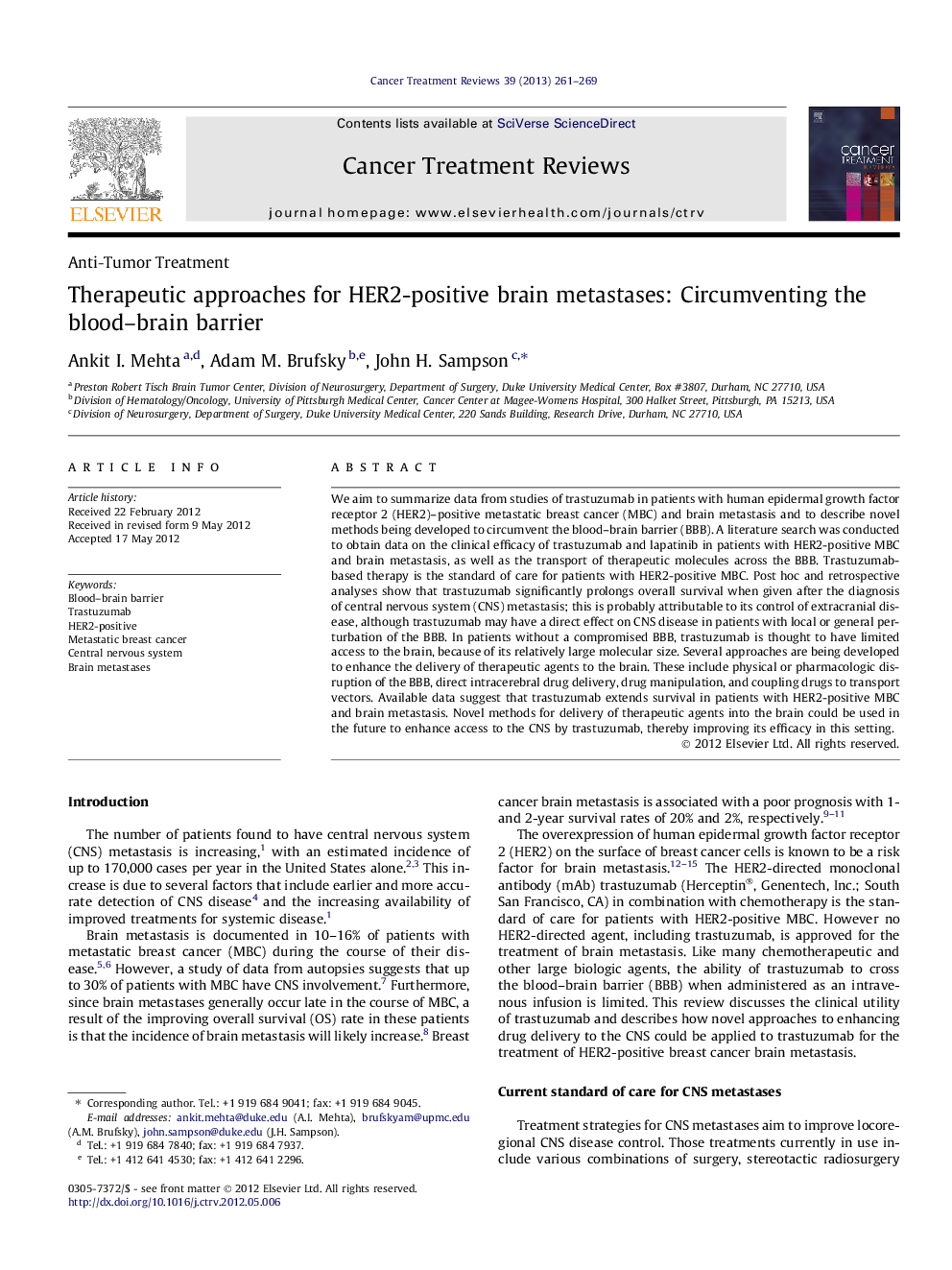| Article ID | Journal | Published Year | Pages | File Type |
|---|---|---|---|---|
| 3979955 | Cancer Treatment Reviews | 2013 | 9 Pages |
We aim to summarize data from studies of trastuzumab in patients with human epidermal growth factor receptor 2 (HER2)–positive metastatic breast cancer (MBC) and brain metastasis and to describe novel methods being developed to circumvent the blood–brain barrier (BBB). A literature search was conducted to obtain data on the clinical efficacy of trastuzumab and lapatinib in patients with HER2-positive MBC and brain metastasis, as well as the transport of therapeutic molecules across the BBB. Trastuzumab-based therapy is the standard of care for patients with HER2-positive MBC. Post hoc and retrospective analyses show that trastuzumab significantly prolongs overall survival when given after the diagnosis of central nervous system (CNS) metastasis; this is probably attributable to its control of extracranial disease, although trastuzumab may have a direct effect on CNS disease in patients with local or general perturbation of the BBB. In patients without a compromised BBB, trastuzumab is thought to have limited access to the brain, because of its relatively large molecular size. Several approaches are being developed to enhance the delivery of therapeutic agents to the brain. These include physical or pharmacologic disruption of the BBB, direct intracerebral drug delivery, drug manipulation, and coupling drugs to transport vectors. Available data suggest that trastuzumab extends survival in patients with HER2-positive MBC and brain metastasis. Novel methods for delivery of therapeutic agents into the brain could be used in the future to enhance access to the CNS by trastuzumab, thereby improving its efficacy in this setting.
